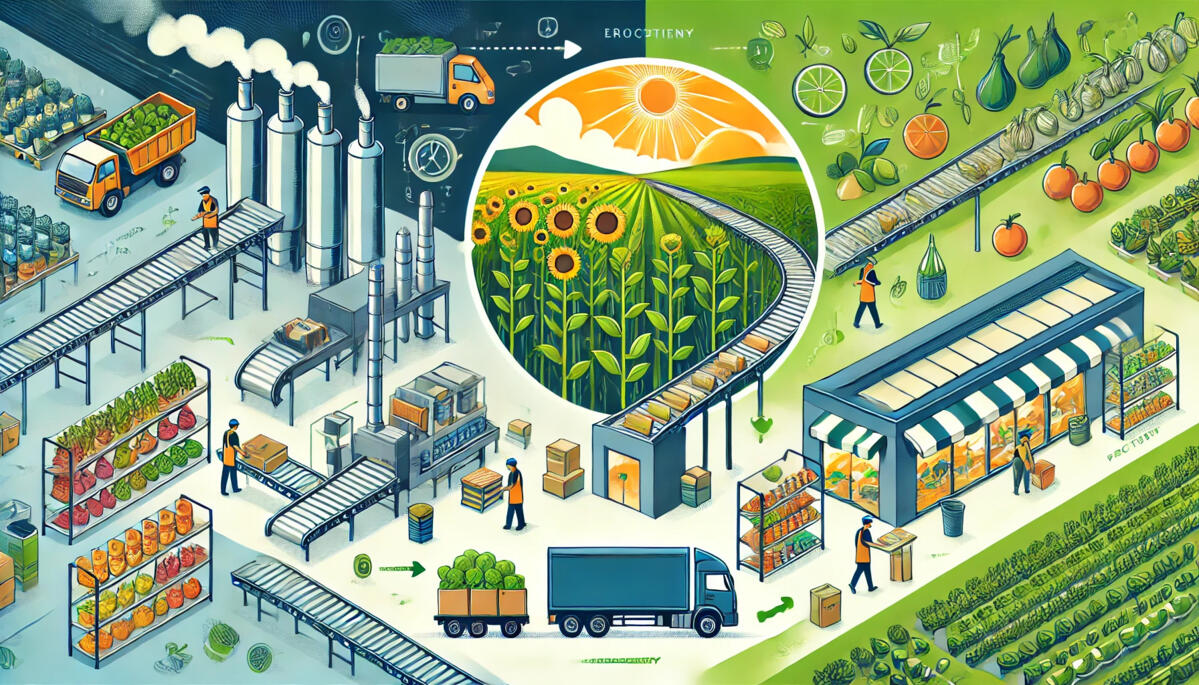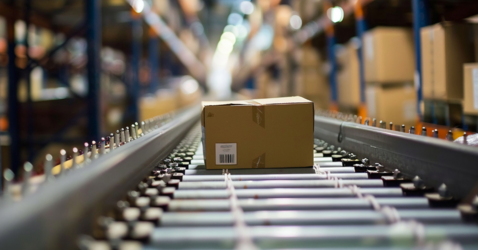The Hard Truth About Cannabis Operations
The cannabis industry started out as the Wild West. It makes sense, it was a wide open market ripe for the picking generating millions in excited money invested into gaining market share while creating the illusion of unlimited opportunities. What started as a passion-driven movement—where experienced cultivators prided themselves on their ability to grow the perfect plant—has transformed into a full-scale commercial industry with regulatory oversight, intense competition, and razor-thin margins.
Yet, despite this evolution, many cannabis businesses still run as if cultivation alone is enough to guarantee success.
It’s not.
Being able to grow premium flower is one thing. Scaling that business efficiently, repeatedly, and profitably—while staying compliant—is another. Running cannabis businesses with a seed-to-sale-to-delivery mindset is a must, ones that don't won’t survive the next phase of this industry. Here’s why.
E-Commerce-integrated ERP isn’t just a tracking tool — it’s a time machine for your business.
Most cannabis operators struggle to connect what’s happening now with what’s coming next. Without clear historical data and future projections, they operate in reaction mode, constantly scrambling to fix problems instead of anticipating and optimizing.
With a properly integrated seed-to-sale ERP, businesses can:
✔️ Look backwards: Track every unit from seed to harvest to sale—batch, lot, test results, cost, and more.
✔️ Manage the present: Automate inventory, compliance, and order fulfillment in real time.
✔️ Predict the future: Forecast demand, pre-sell inventory, and scale before problems arise.
And at the final stage—delivery—modern ERP systems integrate with geo-targeted logistics to ensure customers receive accurate, on-time orders. Whether it’s a single B2C sale or a bulk B2B shipment, operators can now track:
What’s in transit
Where it is in real time
When it will arrive, down to the minute
This is where real business optimization happens. When operators understand their numbers, automate their workflows, and perfect their delivery logistics, they gain end-to-end control over profitability and customer experience.
Seed to sale to delivery isn’t just a process—it’s the foundation of a truly scalable business.
The Wake-Up Call: Pre-Rolls Are the Backbone of Profitability
In the early days of legalization, many cultivators had a clear vision: beautiful jars of premium flower, meticulously curated for the discerning smoker. Sure it made sense. After all, top-shelf product should be presented in top-shelf packaging. There's nothing wrong with showcasing your best in stand-out presentation.
But then the data started coming in. ERP systems and sales tracking showed a different reality: the market didn’t want jars of flower. They wanted pre-rolls - age-old convenience. Consumers didn’t want to grind, pack, and roll every time they smoked—they wanted an easy grab-and-go option.
Yet, many cultivators resisted. They wanted to sell what they liked, rather than what customers were actually buying. And those businesses struggled.
Operators who adapted and built pre-roll production into their core strategy found success. Today, it’s clear:
✔️ If you don’t have a pre-roll, you don’t have a brand.
✔️ If you’re not growing specifically for pre-rolls, you’re leaving money on the table.
✔️ You can love high-end flower—but it’s pre-rolls that keep the lights on.
The lesson? Data doesn’t lie. Businesses that ignored the numbers found themselves sitting on unsold inventory. Businesses that adapted? They thrived.
Are you producing what your customers actually want—or just what you like?
Profitability: Can You Sell 1,000 Units a Day and Know Exactly What It Cost?
Can you sell a product 1,000 times a day and know — down to the penny — what it cost you to put it in your customer’s hands For too many cannabis businesses, the answer is: No. That’s a huge problem.
🔻 Without full cost visibility, pricing is based on guesswork.
🔻 Hidden costs—like compliance fees, storage, labor, and distribution—bleed your margins.
🔻 Operators assume they’re profitable but have no way to track it in real-time.
This is maturing industry, margins are shrinking. Competition is growing. The only way to stay ahead is data-driven cost tracking as mature manufacturing and supply chain operations do.
✅ A proper ERP system tells you exactly what each SKU costs, down to the cent.
✅ You can track your profit per unit—not just revenue.
✅ You can optimize pricing with precision—not gut feeling.
If you don’t know your real costs, you aren’t running a business—you’re running an expensive experiment. Can you answer this question with certainty? If not, it’s time to fix it.
The Burnout Equation: Why Your Best Employees Keep Leaving
Every cannabis operator knows turnover is a massive issue. The common assumption (and tl;dr mistake)? “People leave for better pay.”
Nope. People leave because their jobs are chaos and stress out their lives both at work and after.
In many cannabis businesses, employees are expected to do everything at once, and de facto worry out it the rest of the time.
✔️ Track compliance reports
✔️ Manage inventory & seed-to-sale tracking
✔️ Keep up with production quotas
✔️ Fulfill orders & handle logistics
✔️ Respond to regulators, vendors, and customers
That’s not a job—it’s a burnout recipe.
When businesses fail to implement structured workflows and automation:
❌ Staff are overwhelmed.
❌ Compliance risks increase because people are stretched too thin.
❌ Turnover skyrockets—and with it, the cost of hiring and retraining.
The best operators don’t just track product—they take care of their people.
✔️ Automating data entry and compliance tracking removes unnecessary stress.
✔️ ERP-driven workflows create repeatable, scalable processes.
✔️ A well-structured business makes work predictable, so employees stay longer.
If you’re still running on spreadsheets and manual tracking, you aren’t just hurting efficiency—you’re driving away your best employees. How long can you ask your team to walk, chew gum, calculate pi, and make an omelet at the same time?
Sales Teams Must Sell with Data, Not Gut Feeling
Your sales team is your revenue engine. But too many cannabis businesses operate with zero real-time inventory visibility.
If your sales team doesn’t know what’s in stock, they aren’t selling—they’re guessing. That leads to:
❌ Overpromising products that aren’t actually available.
❌ Missed opportunities to pre-sell product before harvest.
❌ Order chaos, as fulfillment teams scramble to catch up.
The solution? Real-time ERP & inventory tracking.
✔️ Sales teams can instantly see what’s available.
✔️ They can pre-sell batches before they’re even harvested.
✔️ Customers get accurate, faster fulfillment—every time.
When sales teams have access to real-time data, revenue doesn’t just grow—it becomes predictable. Are your sales reps closing deals based on hard data—or just hoping for the best?
The Future Belongs to Seed-to-Sale Thinkers
The cannabis industry is evolving. The businesses that survive won’t be the ones that grow the best flower. They’ll be the ones that run the best operations.
📌 If you aren’t tracking every dollar in motion, you’re losing money.
📌 If your staff is constantly drowning in tasks, they will leave.
📌 If your sales team doesn’t have real-time inventory data, you’re bleeding revenue.
The best operators have already figured this out. The question is: Will you?
Your next step: what’s the biggest bottleneck in your cannabis operation right now? Drop a comment—let’s talk.


























